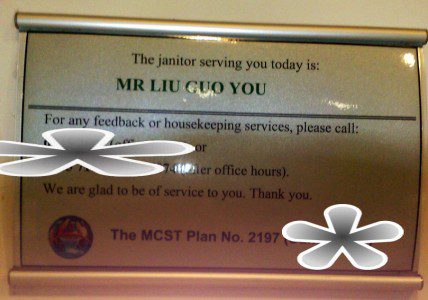Of the 3 areas of learning languages: read, write and speak, I have encountered greater problems improving my own reading skills than writing and speaking. The kids I have taught also seem to have greater need to receive help in developing the habit of reading effectively and fluently. Indeed, there is really very little muscular movement involved in learning to read. To develop the habit of reading is therefore very essential. Unlike writing or speaking, reading can be misinterpreted as an intellectual endeavour. People who read a lot tend to be described as bookworms or studious. individuals. Those who speak well are eloquent and those who write well are called authors or writers. So what about those who read well? How would you describe them? A person proves he is well read when either he makes a speech or writes about what he has read.
About reading:
Reading depends on your sense of sight and your ability to scan through images and impressions.
Reading can also be done by the blind who is unable to see by using their sense of touch. The material used in this case is called braille.
Reading is about collecting facts and learning about those facts which you may later use to manage other information previously stored.
Reading helps you decide on a few keywords or key phrases to help you build your topics
Reading has to satisfy a need or it will lose its purpose and knowledge cannot be sustained. What is your need to read? Is it for business, leisure or self-improvement?
Reading is the foundation of learning. If you have no need to read, you have to develop or create a need. As explained above, the only proof that a person is well read can only come when he begins to speak or write about what he has read. If he does not do his homework, he does not develop content which means he wil lack substance in his spoken and written languages.
Reading can be a spiritual journey. It helps an individual to dig deeper into his soul and find a peaceful recess within.
Teaser
“MMM…now how do we read that?” Loo Go You
“Loo Go You”, that was exactly how a native English may read the name. The brain understands that it has to read ‘i’ in Lui and ‘uo’ in Guo, but inevitably the more creative half decides otherwise. In the name of humour and self-entertainment, in a glance and without further thought, the real name has changed into “Loo Go You”.
How To Read Effectively In 3 Simple Steps
1. Read the heading and the first 200 words.
Tip: You can also jump right to the conclusion to read the last 200 words. Go through the content and index. Do you find the phrases you are looking for?
2. Skim through the entire page and look for keywords or key phrases that you are working on.
Tip: concentrate on a few keywords and scan through to find those keywords on the page you are reading. If you cannot find at least one keyword in the page you are reading, you’ve picked the wrong book. If the keyword keeps appearing frequently, it may also mean you will be spendng time studying rather than reading the book.
3. Study the material around those keywords or key phrases (sub-headings, indexes, archives)
Depending on the depth of the material you are after, you can decide in the first 10 seconds if you wish to continue reading, abandon the process or postpone the thought of pursuing the knowledge written on the passage.
If you have arrived at step 3 and still have not abandoned or postponed the process of reading, it means you ought to own a hard copy of the article or book. Download it from the internet or buy the book so you can start making notes to study the knowledge further.



Trackbacks/Pingbacks